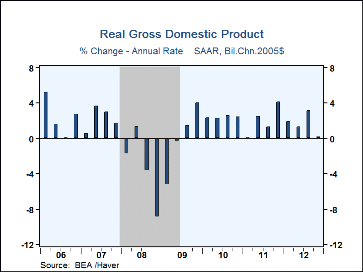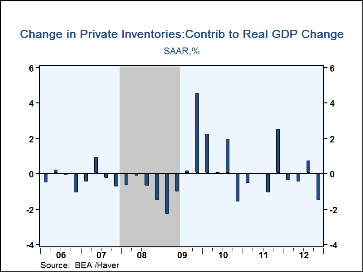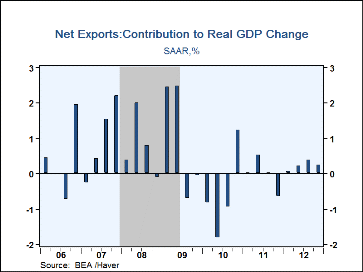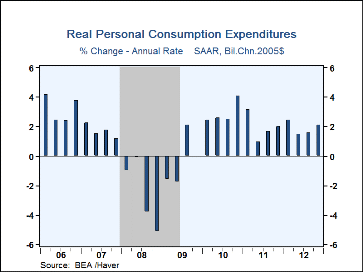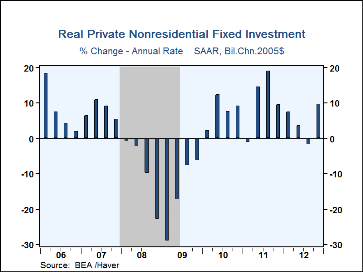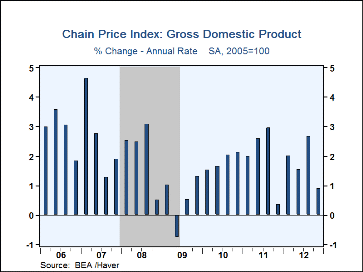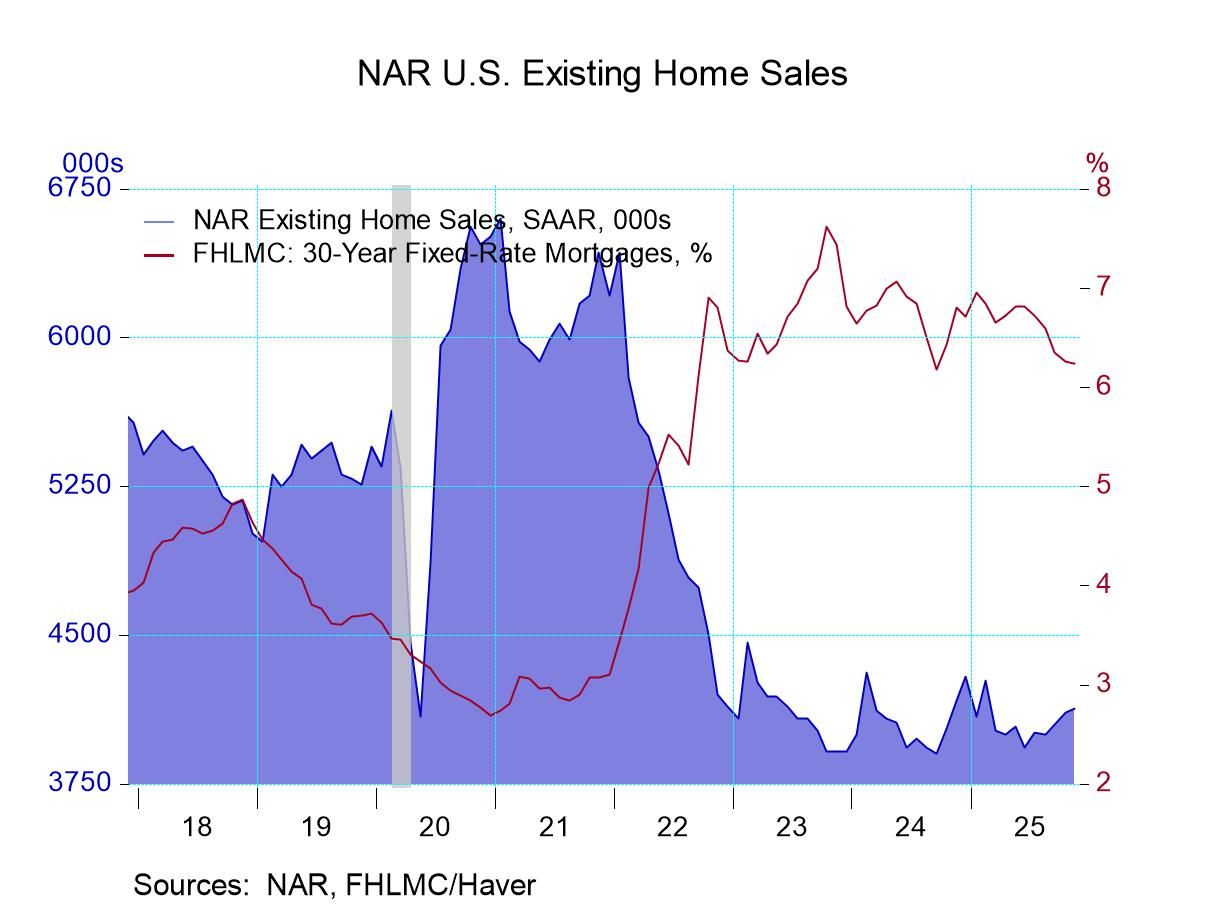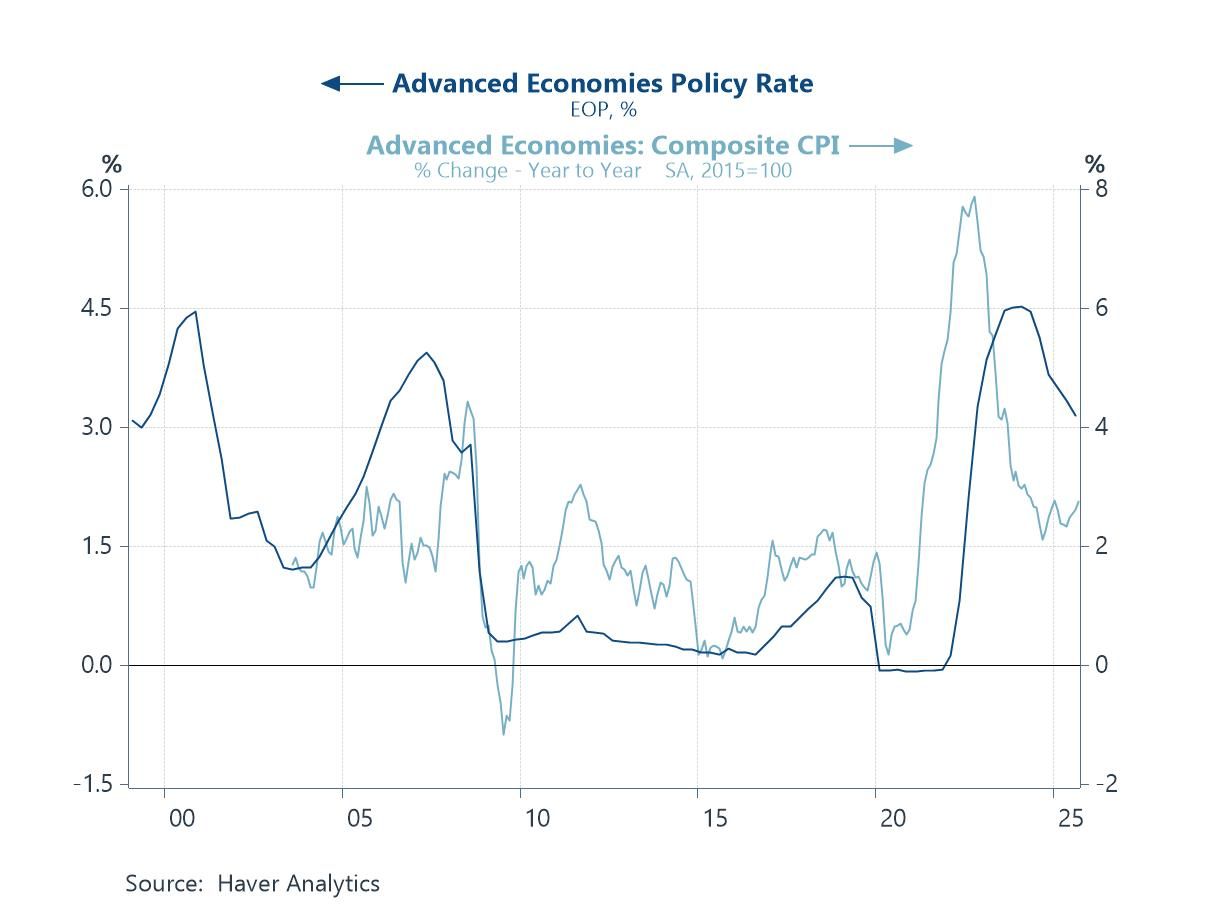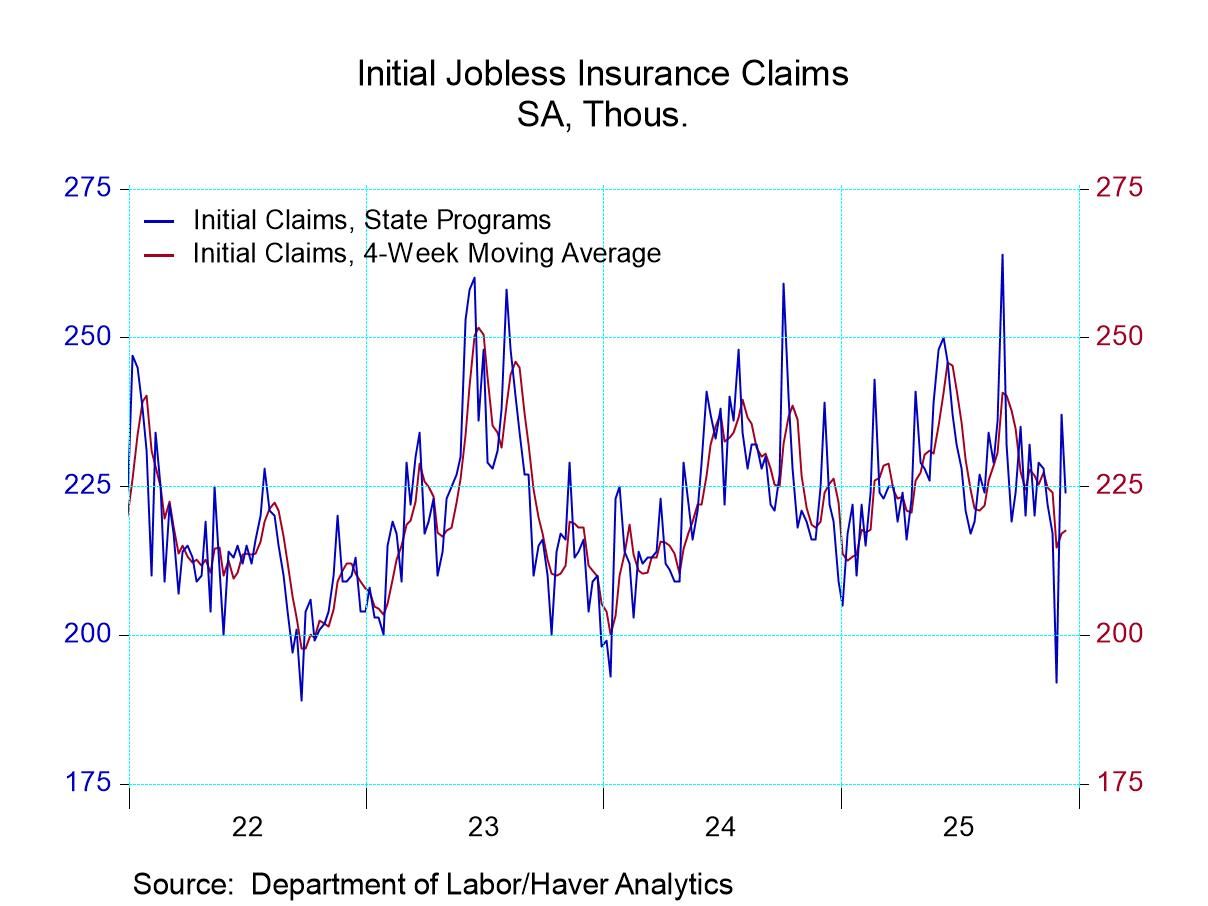 Global| Feb 28 2013
Global| Feb 28 2013U.S. GDP Growth Is Revised Up, But Remains Minimal
by:Tom Moeller
|in:Economy in Brief
Summary
GDP inched up by 0.1% (AR) in Q4'12 (1.6% y/y). That growth rate reversed a 0.1% slip reported in last month's advance estimate. It remained, however, a marked deceleration in growth versus a 3.1% gain in Q3. The revised figure also [...]
GDP inched up by 0.1% (AR) in Q4'12 (1.6% y/y). That growth rate reversed a 0.1% slip reported in last month's advance estimate. It remained, however, a marked deceleration in growth versus a 3.1% gain in Q3. The revised figure also fell short of Consensus expectations for a revision to 0.5%. Regardless, real economic growth during all of 2012 amounted to 2.2%, up from 1.8% in 2011.
Improvement in the foreign trade deficit added 0.2 percentage points to overall economic growth instead of subtracting 0.3 points. That occurred as exports fell at a 1.0% rate (+1.8% y/y) instead of declining at a 5.7% rate as initially estimated. Imports fell at a 4.5% rate (+0.1% y/y) instead of 3.2%.
A greater amount of inventory decumulation offset foreign trade's addition. It subtracted 1.6 percentage points from economic growth last quarter instead of 1.3 points as estimated earlier. All of the reduction occurred in the nonfarm sector. That decline followed a 0.7% addition to growth in Q3. For the whole year, inventories added just 0.2% percentage points to economic growth, following a 0.2 point subtraction in 2011.
Revised estimates of growth in domestic final sales were minimal. The overall gain of 1.4% (1.8% y/y) was led by a 2.1% advance (1.9% y/y) in personal consumption. That was paced by a 22.6% jump (8.3% y/y) in motor vehicle purchases. Real fixed capital spending grew at an improved 9.7% rate (4.6% y/y) while growth in residential investment also was revised up to 17.4% (14.9% y/y). These gains were offset by a deepened decline in government purchases of 6.9% (-1.8% y/y).
Price inflation crept up. The 0.9% rise (1.8% y/y) compared to 0.6% estimated earlier. It still was a significant moderation from Q3 and remained the weakest in a year. For the whole year, the chain-type price index grew 1.8% after a 2.1% rise in 2011. Domestic prices rose at a steady 1.5% clip (1.6% y/y) last quarter and rose 1.7% for the full year. That's down from the 2.5% increase in 2011.
The latest GDP figures can be found in Haver's USECON and USNA databases; USNA contains basically all of the Bureau of Economic Analysis' detail on the national accounts, including the new integrated economics accounts and the recently added GDP data for U.S. Territories. The Consensus estimates can be found in AS1REPNA.
| Chained 2005 $, %, AR | Q4'12 (1st Revision) | Q4'12 (Advance) | Q3'12 | Q2'12 | Q4 Y/Y | 2012 | 2011 | 2010 |
|---|---|---|---|---|---|---|---|---|
| Gross Domestic Product | 0.1 | -0.1 | 3.1 | 1.3 | 1.6 | 2.2 | 1.8 | 2.4 |
| Inventory Effect | -1.6 | -1.3 | 0.7 | -0.5 | -0.4 | 0.2 | -0.2 | 1.5 |
| Final Sales | 1.7 | 1.1 | 2.4 | 1.7 | 2.0 | 2.1 | 2.0 | 0.9 |
| Foreign Trade Effect | 0.2 | -0.3 | 0.4 | 0.2 | 0.2 | 0.1 | 0.2 | -0.4 |
| Domestic Final Sales | 1.4 | 1.3 | 1.9 | 1.4 | 1.8 | 1.9 | 1.8 | 1.3 |
| Demand Components | ||||||||
| Personal Consumption | 2.1 | 2.2 | 1.6 | 1.5 | 1.9 | 1.9 | 2.5 | 1.8 |
| Business Fixed Investment | 9.7 | 8.4 | -1.8 | 3.6 | 4.6 | 7.7 | 8.6 | 0.7 |
| Residential Investment | 17.4 | 15.3 | 13.6 | 8.4 | 14.9 | 12.1 | -1.4 | -3.1 |
| Government Spending | -6.9 | -6.6 | 3.9 | -0.7 | -1.8 | -1.7 | -3.1 | 0.6 |
| Chain-Type Price Index | ||||||||
| GDP | 0.9 | 0.6 | 2.7 | 1.6 | 1.8 | 1.8 | 2.1 | 1.3 |
| Final Sales of Domestic Product | 0.9 | 0.6 | 2.8 | 1.5 | 1.8 | 1.8 | 2.1 | 1.3 |
| Final Sales to Domestic Purchasers | 1.5 | 1.3 | 1.5 | 0.7 | 1.6 | 1.7 | 2.5 | 1.6 |
Tom Moeller
AuthorMore in Author Profile »Prior to joining Haver Analytics in 2000, Mr. Moeller worked as the Economist at Chancellor Capital Management from 1985 to 1999. There, he developed comprehensive economic forecasts and interpreted economic data for equity and fixed income portfolio managers. Also at Chancellor, Mr. Moeller worked as an equity analyst and was responsible for researching and rating companies in the economically sensitive automobile and housing industries for investment in Chancellor’s equity portfolio. Prior to joining Chancellor, Mr. Moeller was an Economist at Citibank from 1979 to 1984. He also analyzed pricing behavior in the metals industry for the Council on Wage and Price Stability in Washington, D.C. In 1999, Mr. Moeller received the award for most accurate forecast from the Forecasters' Club of New York. From 1990 to 1992 he was President of the New York Association for Business Economists. Mr. Moeller earned an M.B.A. in Finance from Fordham University, where he graduated in 1987. He holds a Bachelor of Arts in Economics from George Washington University.


